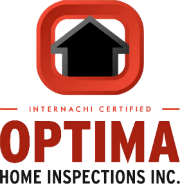Building inspections play a crucial role when it comes to real estate. Whether you’re a buyer or seller in Poughkeepsie, understanding how these evaluations can impact your property’s value is essential. Let’s dive into the various ways building inspections can affect your investment.
1. Uncovering Hidden Structural Issues
A thorough building inspection can reveal underlying structural problems that aren’t immediately visible. These issues can drastically lower property value if not addressed. Hidden structural troubles, like those affecting the foundation or support beams, can require costly repairs that deter potential buyers. A detailed inspection report ensures that sellers are aware of these issues beforehand and can budget for necessary repairs. Fixing such issues not only prevents future headaches but can also lead to an increase in property value by presenting a stable home to prospective buyers.
Moreover, addressing these structural concerns can expedite the selling process. In competitive markets like Poughkeepsie, a property known for its sound structure could stand out among numerous listings. Buyers often prioritize homes with a clean bill of health, making it crucial for sellers to utilize inspection insights to bolster their property’s appeal. Not only do they facilitate transparency, but they also set realistic expectations for both sellers and buyers, aiding smoother negotiations.
2. Spotlighting Outdated Plumbing and Electrical Systems
Inspectors can identify outdated plumbing and electrical systems, which can be costly to replace or repair, potentially decreasing the property’s marketability and value. Obsolete systems aren’t just financial burdens; they pose safety risks that modern buyers wish to avoid. Knowing such details puts sellers in a powerful position to decide whether to overhaul these systems to secure higher offers.
Replacing aged systems improves both functionality and appeal. Modernized plumbing enhances water efficiency, reducing bills, while updated electrical systems provide ample power for today’s tech-reliant lifestyles. These upgrades are not merely cosmetic; they are vital for the longevity and livability of a home. As competition in the real estate market increases, homes with updated systems tend to attract more offers and fetch higher prices.
3. Evaluating Roofing Conditions
The state of a roof is critical during inspections. A well-maintained roof can enhance value, whereas one needing repairs can detract from it. A roof in disrepair raises red flags for potential homeowners. Not only is it a sign of neglect, but it could also indicate broader maintenance issues. A detailed inspection helps reveal the roof’s current state, offering a clear view of potential costs involved in upkeeping.
In regions like Poughkeepsie, where weather changes can be extreme, a sturdy, weather-resistant roof is a must. Inspections can identify leaks, missing shingles, and other concerns, enabling preventative measures before minor issues escalate. Investing in these repairs before listing a property ensures it shows better in listings and remains competitive. In essence, an inspection serves as a valuable tool for improving curb appeal and market value.
4. Assessing Pest Infestations
Pest problems, particularly termites, can quickly undermine property integrity and value, making this a key focus during inspections. These critters can cause extensive damage before they are visibly noticeable, leading to significant structural concerns. An inspection acts as a preventative measure, identifying any infestations early on.
Detecting pest issues early not only saves on immediate repair costs but also prevents long-term financial burdens that could arise from unresolved infestations. Treatments or preventative measures can be implemented to preserve the property’s structural integrity. By addressing these problems, property owners not only ensure the safety and satisfaction of their future buyers but also potentially enhance their home’s market value. A pest-free home is an attractive prospect for buyers, reinforcing the property’s allure and worth.
5. Identifying Unsafe Environmental Factors
Inspections can also reveal environmental hazards such as asbestos, radon, or lead paint, requiring mitigation to maintain or increase property value. Such hazards can deter buyers and necessitate immediate attention due to health risks. Understanding the presence and extent of these hazards allows for informed decisions regarding abatement and safety protocols.
Mitigating these hazards often involves professional intervention, ensuring a safer environment for occupants. Addressing environmental issues can also lead to improvements in the home’s marketability, as safety-conscious buyers look for properties free from such complications. Whether it is installing radon mitigation systems or removing asbestos, sellers who take these steps can set their properties apart as safer and more desirable listings.
6. Improving Negotiation Power
A clean inspection report can empower sellers and strengthen their position during negotiations, potentially increasing the property’s selling price. Buyers are often more willing to compromise on price when properties are well-documented to be in sound condition. The security that an inspection provides is a decisive factor for many buyers considering multiple options.
Inspections not only boost confidence but also clarify expectations for potential buyers. They reduce uncertainties and pave the way for more straightforward negotiations. In Poughkeepsie’s active real estate scene, having an inspection report that emphasizes strengths can turn the tide in a seller’s favor, ensuring competitive pricing and reducing the time a property remains on the market. This boost in negotiation power ultimately strengthens the seller’s position, making the sale process efficient and effective.
7. Enhancing Buyer Confidence
A detailed and positive inspection can boost buyer confidence, making them more likely to proceed with the purchase and potentially offer more. Knowing that a professional has thoroughly vetted a property reassures buyers, as they are investing in a home rather than a potential money pit.
An inspection acts as a seal of quality, vouching for the property’s condition and value. Buyers are drawn to homes that promise fewer post-purchase concerns, making positive inspection reports a valuable selling point. Conveying this level of assurance can make properties more attractive, standing out to well-informed buyers eager to close deals without reservations. In turn, this can lead to more competitive offers and potentially a faster sale.
8. Guiding Future Improvements
Inspections can guide homeowners on necessary future improvements that could enhance property value over time. They provide a roadmap for prioritizing home repairs and renovations, ensuring that investments in the property are done smartly and effectively.
By indicating what needs attention, inspections help homeowners allocate their budget wisely, emphasizing changes that most positively affect property value. Whether it’s upgrading insulation or installing energy-efficient systems, informed choices can modernize a home while boosting efficiency. This proactive approach not only prepares a property for a fruitful sale but also enhances its livability and appeal in the interim.






